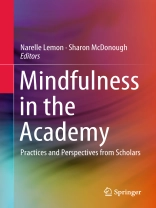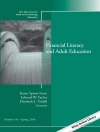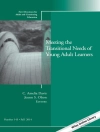This book focuses on the way academics understand, embrace and enact the concepts of mindfulness in approaching their work in demanding and dynamic contemporary higher education environments. It examines how they implement formal and informal mindfulness practices that increase the capacity to transform mind and body states by drawing on concepts such as compassion, kindness, gratitude, curiosity, self-awareness and non-judgemental stances. The book provides insights into and highlights the struggles of scholars through their experiences and perspectives in relation to their identities, practices and job enactment. Each chapter author explains their mindfulness practices and their motivations for implementing them, and explores how mindful ways of researching, writing, learning and teaching, leading, and engaging with others leads us to self-awareness and engagement in the present.
Tabela de Conteúdo
1 Mindfulness in the Academy: An examination of mindfulness perspectives.- Integrity, compassion, and care.- 2 Doormats & Boulders: Uncovering mindfulness traits and wise discernment during stressful experiences in the academy.- 3 Emerging into academic life: Masks of selves and mindful managing of anxiety and perfectionist performance.- Becoming, identity, and professional transitions.- 4 Ch-ch-ch-ch-changes: Changing institution, changing role, changing academic identity?.- 5 Mindful practice as professional identity work.- 6 Exploring mindfulness in teaching-learning scholarship through a reflective conversation.- Collegiality, collaboration and relationships.- 7 Trending to ourselves, tending to each other: Nurturing feminist friendships to manage academic lives.- 8 It’s about fun stuff! Thinking about the writing process in different ways!.- 9 I’m not playing the academic hunger games: Self-awareness and mindful practices in approaching research collaborations.- Leadership, professional vulnerability and change.- 10 Ko wai au? Self-construction of leadership identity in higher education.- 11 The role of mindfulness in managing HRM challenges for senior higher education learning and teaching leaders.- Conscious decisions, being present, and voice.- 12 Mindful care and compassion in higher education: Cultivating communities of practice.- 13 Yoga and pedagogical mindfulness in higher education.- 14 Casualisation, mindfulness, and the working lives of academics.- Resistance, social justice and being the change.- 15 The right kind of ambition.- 16 A glitch in the machine or a glimmer of what could be? Mindfulness as resistance in higher education.- 17 Mindfully living and working in the academy: Continuing the conversation.
Sobre o autor
Dr Narelle Lemon is an Associate Professor of Education at Swinburne University of Technology, Melbourne, Australia. She currently holds the Deputy Chair of Education – Learning and Teaching role within the Department of Education. Narelle’s research is focused on engagement and participation in the area of building learner capacity to engage with cultural organisations and community arts programmes, arts education, and social media for cultural knowledge and professional development. She is interested in the lived experience of being an academic – care, collaboration, mentoring, mindful and supportive practices informed by positive psychology. Narelle blogs at Chat with Rellypops, Tweets as @Rellypops and @Mindful Academic (with Sharon), and curates an online project to promote stories of how creativity and mindfulness are applied to people’s lives from various disciplines in the community on Instagram via @exploreandcreateco.
Dr. Sharon Mc Donough is a Senior Lecturer in the Faculty of Education and Arts at Federation University Australia. She began working in teacher education after a 16-year career as a secondary school teacher. Sharon has an interest in collaborating with schools and organisations to provide learning opportunities for pre-service teachers, and is committed to supporting the ongoing learning of pre-service teachers, teachers and teacher educators. She researches in the fields of self-study, teacher emotion and embodiment, mentoring and resilience.












